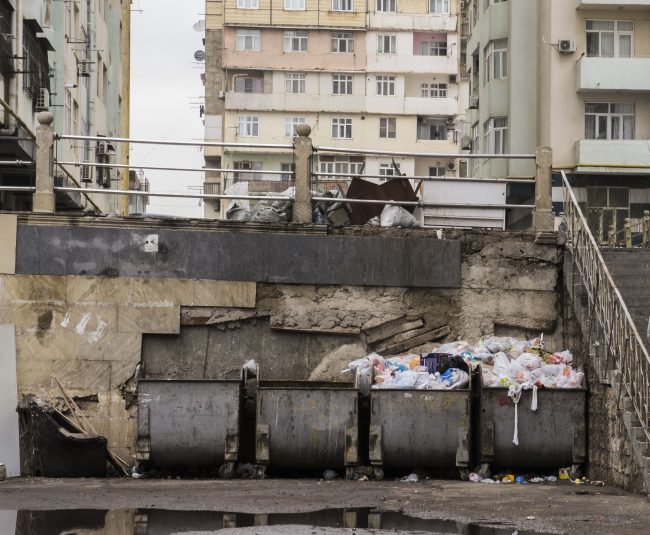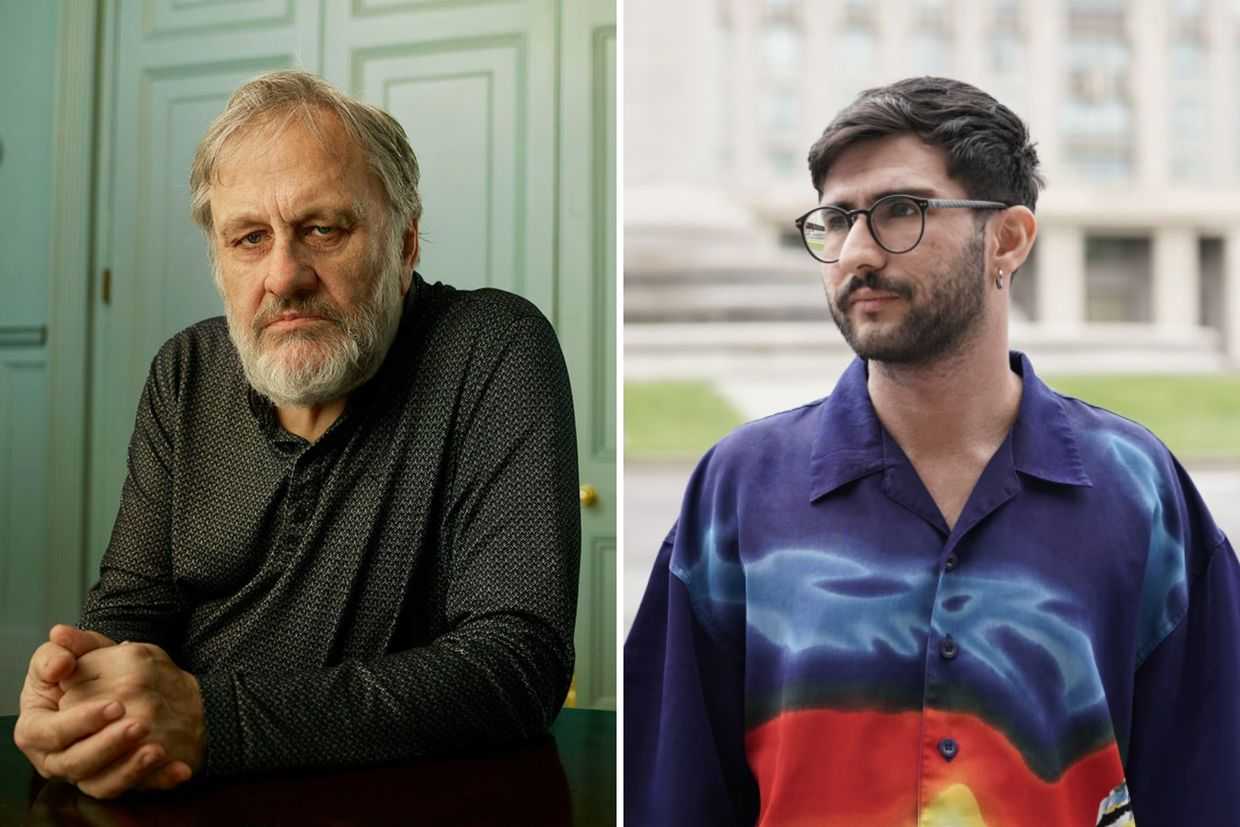

 Baku is the largest and one of the most polluted cities in the South Caucasus. Seven percent of the city’s territory is occupied by dumps. One of the largest rubbish processing plants in Europe has operated in the city for five years, but this has not solved the problem.
Baku is the largest and one of the most polluted cities in the South Caucasus. Seven percent of the city’s territory is occupied by dumps. One of the largest rubbish processing plants in Europe has operated in the city for five years, but this has not solved the problem.
According to official statistics, 1.7 million people lived in Baku in 1995. Twelve years later, the Ministry of Emergencies say the population of the city has risen to 4 million. They produce at least 1.2 million tonnes of rubbish each year and new dumps pop up almost every year, with 43 now in Baku. Of the 1.2 million tonnes of waste produced, only 16% is sorted or incinerated.
Waste is processed by a state-owned company, Tamiz Shahar (clean city). Their sorting facility opened in late 2012, and now processes 200,000 tonnes of waste per year, recovering recyclable materials. It operates almost entirely with state funds.
The plant is located at the Balakhani landfill, which previously hosted a giant rubbish dump. Spokesperson Elmar Malikov told OC Media that they have completely cleared the landfill of decaying waste. ‘Now look how clean it is here! Over the last few years, we have cleared the land and planted 10,000 trees’, he said. Indeed, the land around the plant looks exemplary.
Law and cleanliness
Back in 2012, Azerbaijan’s Parliament introduced fines for illegal dumping. Fines for individuals were set at ₼20 ($12), for organisations ₼100 ($60), and for officials as much as ₼500 ($300).
According to these rules, the distance between the bins should not exceed 100 metres. But residents of Baku still complain that they are forced to walk with rubbish in hand or in their pockets, because there is nowhere to throw it.
How well the Law on Industrial and Household Waste is working is still unclear.
The press service of the Ministry of Internal Affairs says that district inspectors monitor for infractions, and can fine people if they catch an offender at the scene. But there are doubts as to whether anyone is actually enforcing this law. In an interview in 2016, MP Elmira Akhundova said the law does not function.
‘Do not litter here, donkey!’
According to sociologist Umay Akhundzade, the issue of cleanliness does not only depend on the amount of resources allocated or the laws in place. She says there is a low level of social responsibility in Azerbaijan, evidenced by ubiquitous warnings on the walls about the ban on littering, such as ‘do not litter here, donkey!’. According to Akhundzade, had there been solidarity at the community level, then even without regulations, the streets would be clean.
Many in Baku complain of a lack of a culture of cleanliness. Alena lives in Akhmedlakh, a suburb on the outskirts of the city. She complains about the mess in her building. According to Alena, her neighbors rent apartments and do not clean the rubbish from their own front doors, and throw rubbish in the yard under their own balconies. Alena says she has already tried to complain to the Housing and Communal Services, but to no avail.
Psychologist Orkhan Sultanov thinks the situation could be explained by the broken windows theory. According to this theory, even a small crime, if left unpunished, can lead to an epidemic of that crime. According to Sultanov, people quickly learn what is socially acceptable. In this way, just one bottle or box thrown on the street quickly turns into a heap of rubbish.
‘In the city centre, rubbish does not stay for long, which is why people do not throw litter there. But on the outskirts, there’s no one regulating this, and so one bottle turns into a real dump, including obscene graffiti’, he says.
Volunteers against rubbish
There are some volunteer groups and private companies in Baku trying to deal with rubbish in their own ways. Youth movement Green Baku was founded in 2010. The group recently organised a campaign in Baku to collect paper, polyethylene, plastic, and aluminium cans for recycling. The recyclables gathered by volunteers were later taken to the Tamiz Shahar plant.
Green Baku also launched a startup in early 2017, producing eco-products out of 100% recycled paper: notebooks, envelopes, and stickers.
There are other groups trying to tackle Baku’s waste problem, many organise events through social networks and at clean areas, mostly the beaches. In the summer of 2017, the Azerbaijani Scouts Organisation arranged an event to clean the coast of rubbish.
A campaign in 2015 by the State Agency of Civil Services and Social Innovation encouraged people to collect waste paper in exchange for tree seedlings to plant, but campaign was not widely popular.
Samir Gadirov, a coordinator at Green Baku, says members of the movement have worked to clean the coast of the Caspian on more than one occasion.
‘In 2015, for example, the beach in Novkhani (a suburb of Baku) was cleaned by 600 people. And now, twice a year — in May and September, before and after the beach season — we organise events to clean the coast’, Gadirov says. However, volunteers from the group say that even though their actions are worthwhile, just a few days after cleaning the beach, it goes back to its former look.









